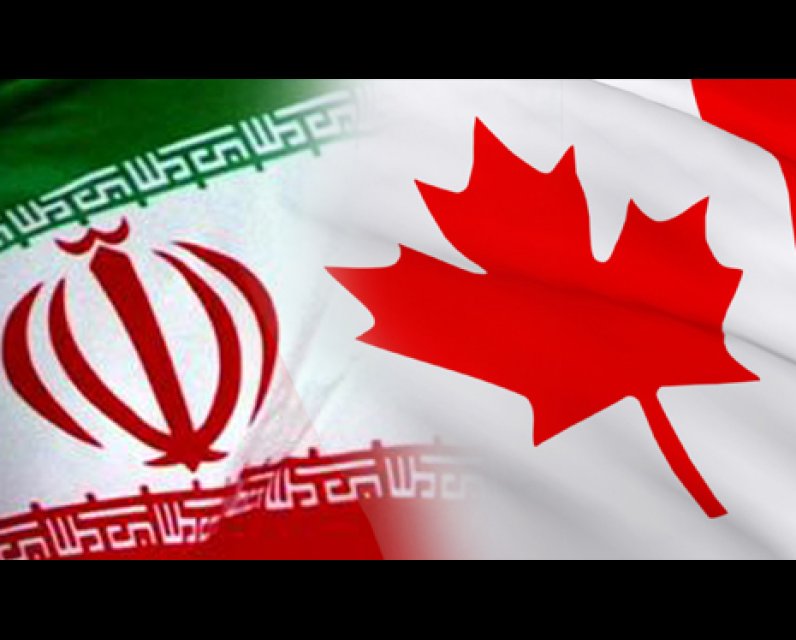Warning message
- Last import of users from Drupal Production environment ran more than 7 days ago. Import users by accessing /admin/config/live-importer/drupal-run
- Last import of nodes from Drupal Production environment ran more than 7 days ago. Import nodes by accessing /admin/config/live-importer/drupal-run
Unpublished Opinions
Alma mater: American Military University (MA, Grad Cert), Concordia University (BA).
Membership:
- Member of the Order of the Sword & Shield for Homeland Security and Intelligence
- Member of the West Virginia Iota Chapter of Pi Gamma Mu Social Science Honor Society
- Member of the Golden Key International Honor Societ
Understanding the Diplomatic Crisis Between Canada and Iran

The Harper government`s decision to cut the diplomatic ties with Iran surprised many. Most reactions to the event were about whether or not the decision was right. They were about describing how Canadian foreign policy is shifting towards a new direction. But less we heard about the causes that led to the crisis. Here are some of the facts that are necessary to formulate an informed opinion about the crisis between Canada and Iran.
John Baird ,the minister of foreign affairs, in explaining the decision of his government to cut diplomatic ties with Iran refered to three points: Iran`s Human rights record , Its failure to protect diplomatic missions and its support of Syria and terrorism.
1. Human Rights
The human rights argument seems unconvincing to anybody who knows the simple fact that Canada maintains diplomatic ties with countries that are far worse than Iran. The best example is the state of Qatar that was slamed by many organizations on the issue of modern slavery. Qatar is a state that operates without a parliament and is being ruled by a family. Despite the fact that this ambitious tiny dictatorship rallied with its subordinate poor Arab and African states to take the headquarters of the UN agency ( ICAO) out of Montreal, Canadian space and airports are open to Qatar airways and the diplomatic ties are excellent.
Although the human rights issue can not justify the crisis, it remains an important factor that could help prevent it. All of us remember the story of the Candian-Iranian photojournalist Zahra Kazemi that was tortured and killed in Iran in the summer of 2004. The Iranian authorities refused to launch an independent investigation and refused to send the victims`s body to the family in Canada. If we compare Kazemi`s story with that of the Canadian doctor from the U of A (Ossama al Attar) kidnapped by Saudi police in October 2011, we will find that Saudi Arabia despite its terrible human rights record did not cross the red line when it was about a Canadian citizen. Saudi Arabia quickly released the victim, whereas Iran clearly acted with no consideration to one of the most sensitive issues to any Canadian government which is the security of its citizens abroad. Iran also tried to use the issue of the Canadian-Iranian teen named Keyvan Tabesh who was killed by a B.C officer. Tabesh was intoxicated, had a sharp object and threatened the life of others. Iran`s foreign minister then overreacted accusing Canada of racism. When overreaction becomes frequent in any bilateral relation, the cutting of diplomatic ties becomes just a matter of time.
2. The failure to protect diplomatic missions
It is mind puzzling to see a Canadian foreign affaires minister reacting to Iran's failure to protect diplomatic missions such us that of the USA in the early 80s and few other mob attacks on the British embassy in Teheran after that. Canadian diplomatic missions were not attacked and always offered an opportunity for dialog between Iran and the West. Joe Clark in his recent book (Canada is the country that ‘lectures and leaves’) sharply criticized the Harper government’s foreign policy. He wrote that Ottawa has squandered Canada’s reputation for bridging divides and has abandoned diplomacy by closing its embassy in Iran. How ever unconvincing the argument of Iran's failure to protect diplomatic missions can be, it remains an example of overreactions that marked the ill bilateral relations.
3. Support of Terrorism and the Syrian Government
Canada has listed Hizbollah - Iran's biggest ally in the region - as a terrorist group, and the Harper government blamed Iran for supporting the Syria regime using the Lebanese Hizbollah fighters and expertise in the guerilla warfare. Hizbollah undoubtedly changed the course of the Syrian civil war in favor of the regime led by president Bashar Al Assad . According to a serie of documentaries by the Tunisian state television, all the returning Tunisian terrorists affiliated with Al Qaeda were trained in both Lybia and Turkey . They are financed by Qatar and Saudi Arabia to overthrow the Syrian secular regime. So it can not be argued that Iran's support of Hizbollah justifies the diplomatic crisis with Canada. It is more justifiable if so was the case with Turkey, Saudi Arabia, Lybia and Qatar given the fact that Al Qaeda is internationally recognized as a terrorist group while there is a dispute among UN member states as to whether or not Hizbollah should be listed as a terrorist group.
As a conclusion, The crisis between Canada and Iran did not result from the three points listed by Canada's foreign minister. It is the result of a serie of overreactions between the two countries and the abscence of mutual understanding of each other's red line that should not be crossed.



Comments
Be the first to comment